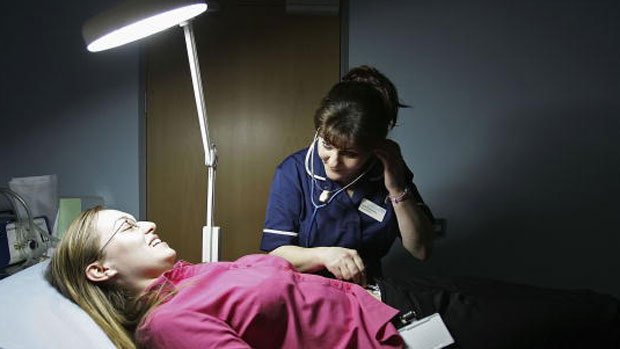Cervical cancer: the symptoms and treatments
New TV campaign is urging women to have smear tests as uptake falls to 20-year low

A free daily email with the biggest news stories of the day – and the best features from TheWeek.com
You are now subscribed
Your newsletter sign-up was successful
Health officials are launching a nationwide campaign urging women to go for smear tests amid warnings that more than one in four women is skipping screenings.
All women between the ages of 25 and 64 are eligible for a free cervical screening every three to five years, yet latest government figures show that take-up has fallen to 71.4% - a 20-year-low, reports The Daily Telegraph.
In a bid to reverse this trend, Public Health England is launching an online and TV campaign to remind women of the importance of getting tested.
The Week
Escape your echo chamber. Get the facts behind the news, plus analysis from multiple perspectives.

Sign up for The Week's Free Newsletters
From our morning news briefing to a weekly Good News Newsletter, get the best of The Week delivered directly to your inbox.
From our morning news briefing to a weekly Good News Newsletter, get the best of The Week delivered directly to your inbox.
Two women die from cervical cancer every day in England, but it is estimated that 83% of cases would be prevented if all eligible patients were screened, according to Sky News.
What is cervical cancer?
Cervical cancer develops in the cervix, the entrance to the womb from the vagina, says the NHS website. It mainly affects sexually active women aged between 30 and 45, and is the most common form of cancer in those aged under 35.
What are the signs?
A free daily email with the biggest news stories of the day – and the best features from TheWeek.com
It is common to see no symptoms during the early stages of cervical cancer. When symptoms do occur, the most usual is “abnormal vaginal bleeding, which can occur during or after sex, in between periods, or new bleeding after you have been through menopause”, says the NHS site.
Although abnormal bleeding is not always a sign of cervical cancer, patients with this symptom are advised to see their GP as soon as possible.
What are the causes?
The common sexually transmitted virus, HPV, is responsible for 99.7% of cervical cancer cases. Although most of HPV’s 100 strains are harmless, “some types can cause abnormal changes to the cells of the cervix, which can eventually lead to cervical cancer”, says the NHS.
How is it treated?
Treatment for cervical cancer depends on how far the cancer has spread.
If diagnosed at an early stage, doctors may recommend surgery to remove the cervix and some or all of the womb. Early-stage patients may also be advised to have radiotherapy, sometimes used in tandem with surgery.
Chemotherapy and radiotherapy are used together to treat more advanced cases.
Side effects of treatments can include early menopause and infertility.
How can it be prevented?
Using condoms during sex can help to prevent HPV transmission, but infection is still possible because “the virus is also spread through skin-to-skin contact of the wider genital area”, says the NHS.
Since 2008, the health service has offered free HPV vaccines to girls aged 12 and 13. The vaccine protects against HPV strains that cause most cervical cancers, as well as some anal and other genital cancers and cancers of the head and neck.
But the NHS say the best way to fight cervical cancer is by identifying it at an early stage, through regular cervical screenings. The NHS offers free smear tests every three years for women aged 25 to 49, and every five years for those aged 50 to 64.
Even women who have received a vaccination for HPV require regular screenings, as they are not guaranteed protection.